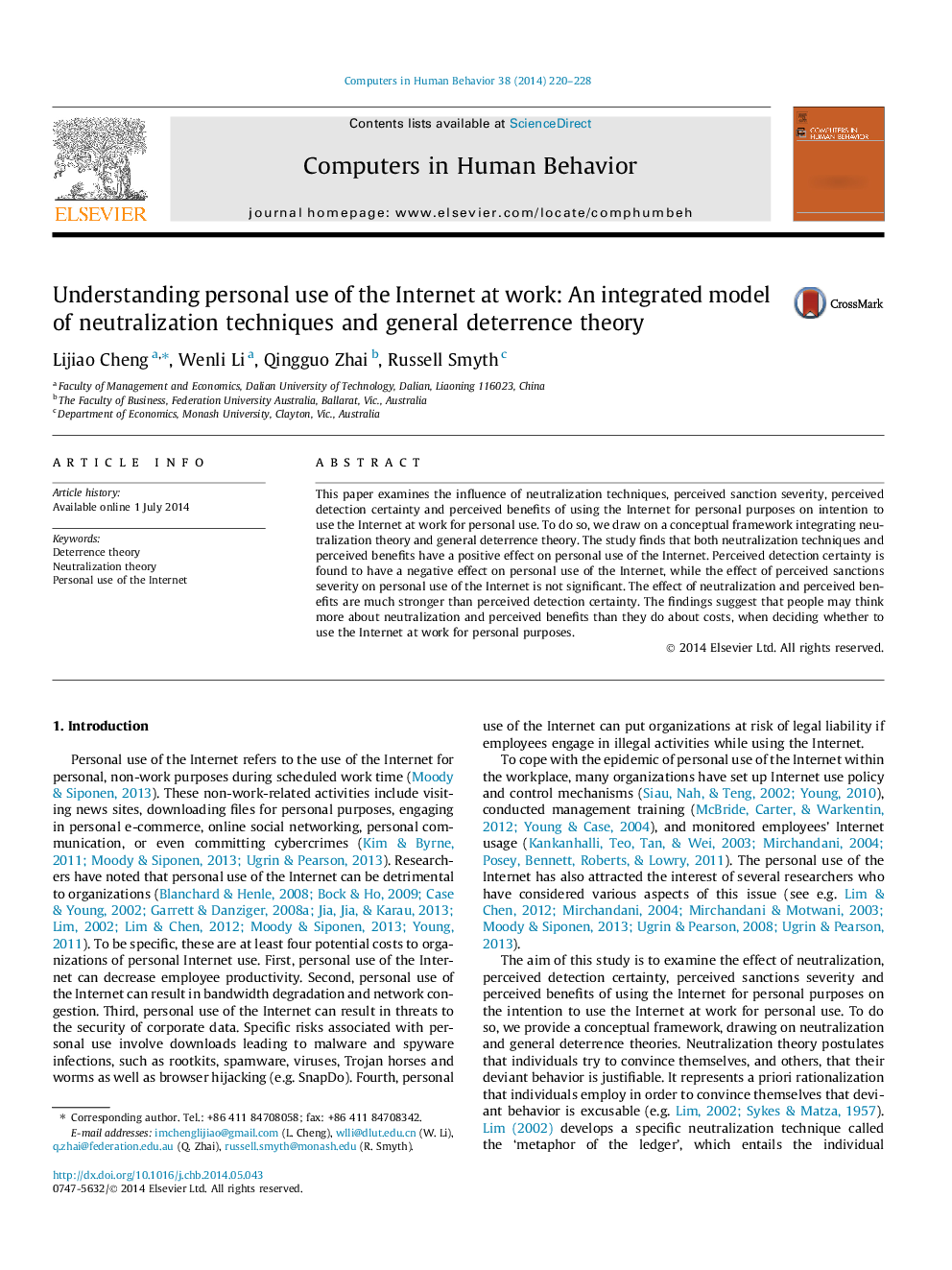| Article ID | Journal | Published Year | Pages | File Type |
|---|---|---|---|---|
| 350631 | Computers in Human Behavior | 2014 | 9 Pages |
•We integrate both deterrence and neutralization theories to study the behavior.•We extend general deterrence theory by incorporating benefits into the model.•Neutralization is the strongest predictor of personal Internet use intention.•Perceived benefits have a positive effect on personal use of the Internet.•Sanctions are found to have mixed impacts on personal use of the Internet.
This paper examines the influence of neutralization techniques, perceived sanction severity, perceived detection certainty and perceived benefits of using the Internet for personal purposes on intention to use the Internet at work for personal use. To do so, we draw on a conceptual framework integrating neutralization theory and general deterrence theory. The study finds that both neutralization techniques and perceived benefits have a positive effect on personal use of the Internet. Perceived detection certainty is found to have a negative effect on personal use of the Internet, while the effect of perceived sanctions severity on personal use of the Internet is not significant. The effect of neutralization and perceived benefits are much stronger than perceived detection certainty. The findings suggest that people may think more about neutralization and perceived benefits than they do about costs, when deciding whether to use the Internet at work for personal purposes.
